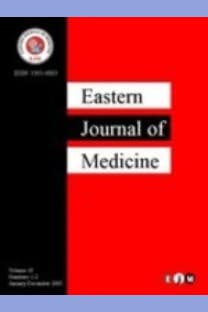ANTIOXIDATIVE STRESS
ANTIOXIDATIVE STRESS
Objective: The aim of this short review is to provokefocuses on the antioxidant-induced stress. Althoughthere are studies documenting that supplementationwith antioxidants appears to reduce lipid peroxidationand oxidative stress, it is still unknown exactly whatamounts are needed to have a beneficial antioxidanteffect and which dose reflects the safe and appropri-ate limit for use. Many of antioxidant vitamins and theother antioxidants can cause pathologic changes tothe exposed tissues and to the organs of the bodiesby initiating different mechanisms. These harmful andundesired effects are created by prooxidant, antioxi-dant or some other unknown ways. Although the mostimportant point related to the use of antioxidants isnot their dosages, the term hypervitaminosis is com-monly used referring to the negative effects of the over-doses of the vitamin antioxidants. The question whichlevel of the antioxidants may lead to stress is unan-swered yet though this is vital in determiningantioxidative stress. This article uses the term“antioxidative stress” for the first time for the nega-tive effects of antioxidants. In our opinion, focusingon antioxidative stress is essential as it is on oxida-tive stress by the medical disciplines. For this purpose,close collaboration between the triad of molecular bio-chemist, physiologist and the pharmacologist is re-quired to develop new, specific, and more effectiveantioxidants and therapy modulations. We believe thatfurther studies are needed to elucidate the factors andways creating the antioxidative stress, as well as itsconsequences together with an “insurance policy”containing appropriate measures against to it.Key words: Antioxidative stress, oxidants, antioxidants,vitamins.
Keywords:
-,
- ISSN: 1301-0883
- Başlangıç: 1996
- Yayıncı: ERBİL KARAMAN
Sayıdaki Diğer Makaleler
G.m. MANTAR, W.a. KHOUDOUD, M. FAYAD, R. CHOUEİRİ, M. MİKATİ, A.m. ABDELNOOR
The Action of a Calcium Channel Blocker (Verapamil) on Gallbladder Contractions in Humans
S. KAPICIOĞLU, Ö. ŞENTÜRK, N. BAMBUL, K. İLGÜN
O. GÜLER, M. AYDIN, H. DİLEK, B. BAKIR, H. IRMAK, A. ARAS
Treatment of Refractory Generalized Status Epilepticus With Continuous Infusion of Midazolam
H. ULVİ, T. YOLDAŞ, R. YİĞİTER, N. ÇAM, B. MÜNGEN
M. DENLİ, H.i. AYDIN, R. DÜNDARÖZ, T. ÖZIŞIK, E. ERDEM, V. BALTACI
